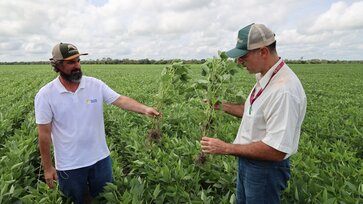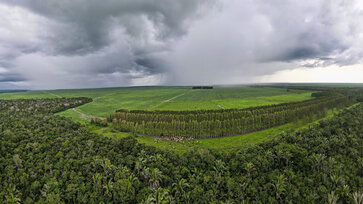Commodity Hub Brazil
The AgriChains Brazil project works to increase the sustainability of the soybean supply chain. It also combines supply chain and territorial approaches to protect landscapes and ecosystems in the Cerrado biome and strengthen supply chains for family farmers and traditional populations, including babassu and carnauba. The initiative combines supply chain improvements (traceability, certification, and corporate due diligence) with landscape conservation and community empowerment. For soy producers, it provides technical assistance on sustainable agriculture and deforestation-free practices while supporting Brazil's compliance with EUDR through traceability mechanisms. In parallel, the project empowers traditional communities by formalizing babassu and carnauba supply chains: improving working conditions, supporting cooperatives, and connecting harvesters to ethical markets and responsible buyers. Through multi-stakeholder platforms and policy engagement, the project creates models for reconciling agricultural production with forest conservation and social inclusion, while preparing Brazilian suppliers to meet growing international demand for sustainable commodities.
The project at glance
Project goals
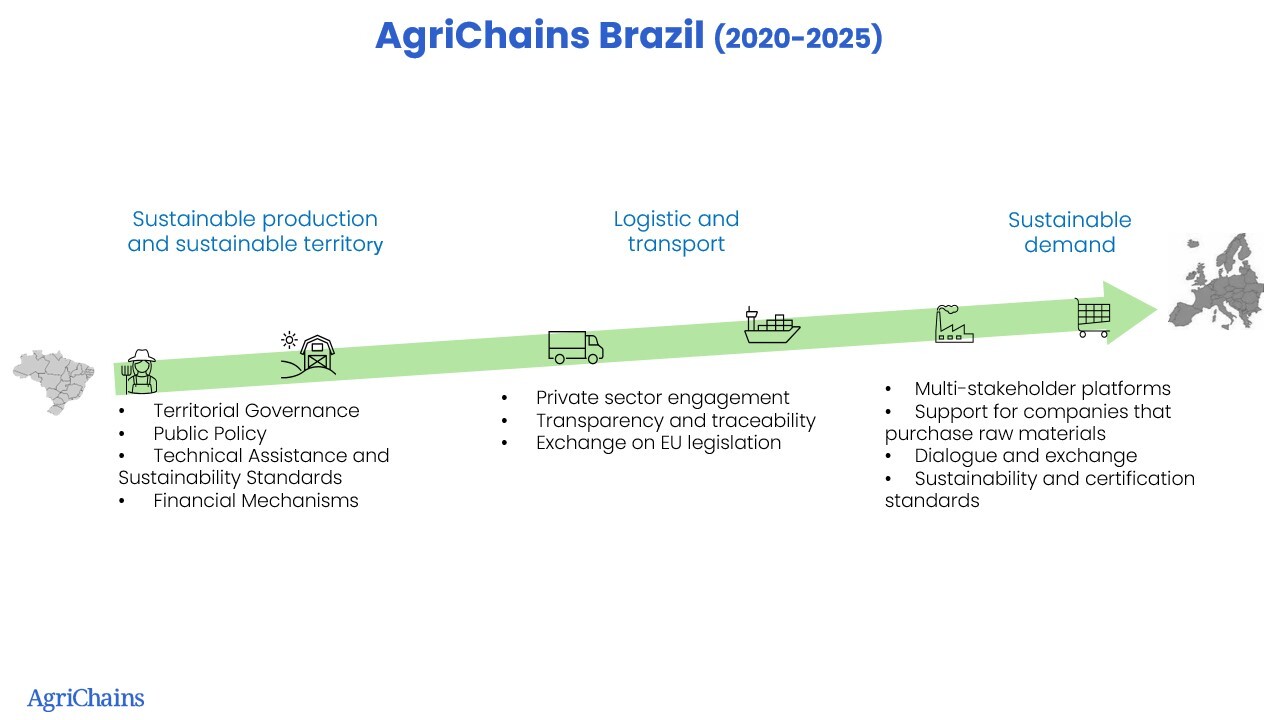
The project aims to promote sustainable soy production while protecting the Cerrado biome and supporting family farmers and traditional communities through:
- Supply chain improvements (traceability, certification, corporate due diligence)
- Landscape conservation (multi-stakeholder governance, ecosystem protection)
- Livelihood strengthening (capacity building, public policies, market access)
Background & Project Development
Brazil is the world’s largest soybean producer, with an annual output of 170 million tons. About 50% of this production comes from the Cerrado biome, a highly biodiverse savanna, which is actually facing severe environmental challenges, including deforestation, conversion of native vegetation, and rural conflicts. Additionally, European supply chain legislation, such as the EU Deforestation-Free Regulation (EUDR), imposes stricter sustainability requirements on imports, pressuring Brazil to improve traceability and environmental compliance.
The AgriChains Brazil project, funded by the German Federal Ministry for Economic Cooperation and Development (BMZ), aims to transform the soy supply chain into a more sustainable model by integrating supply chain and landscape approaches. The initiative focuses on improving sustainability of the entire supply chain, agricultural practices, protecting ecosystems, and strengthening the livelihoods of family farmers and traditional communities in the state of Maranhão, a critical soy-producing region in the Cerrado.
Project Implementation
Developed through German-Brazilian collaboration, the project brings together soy traders, European buyers, logistics firms, government agencies and NGOs, the promotion of sustainable soy production in Brazil's Cerrado biome while protecting ecosystems and supporting rural communities. Its approach focuses on improving supply chains through traceability systems, certification programs, and corporate due diligence; conserving landscapes via multi-stakeholder governance and ecosystem protection; and strengthening livelihoods through capacity building, public policies, and market access. Key strategies include training farmers in sustainable agriculture, developing and implementing traceability systems, and establishing multi-stakeholder platforms like the Soy Dialogues.
The project advises Brazilian stakeholders on EUDR compliance, and addresses social issues by empowering women-led cooperatives and improving labor conditions in vulnerable supply chains like carnauba wax and babassu oil production. These efforts combine field-level interventions with policy work to create systemic change in Brazil's agricultural sector.
Challenges and obstacles
Supply Chain Transparency and Compliance
50% of the soybean area is in the Cerrado Biome, with strong challenges of deforestation and conversion of native vegetation, lack of sustainable practices. While Brazil has strict environmental laws, weak enforcement and confusing land-use regulations make it difficult to distinguish legal from illegal deforestation. Many farms lack proper documentation, and supply chains are fragmented, making it hard to verify sustainability claims. Financial incentives to reduce deforestation and promote good practices are still limited and Brazil’s current traceability systems are still developing, leaving gaps in reliable certification. This undermines efforts to ensure EUDR-compliant, deforestation-free soy.
Social and Ethical Risks
Land conflicts between agribusiness and traditional communities are common. Producers and workers in e.g. babassu and carnauba harvesting, that live around soy farms often endure poor conditions and informality. Without due diligence and stronger safeguards, companies risk sourcing soy tied to social exploitation, damaging their sustainability reputations.
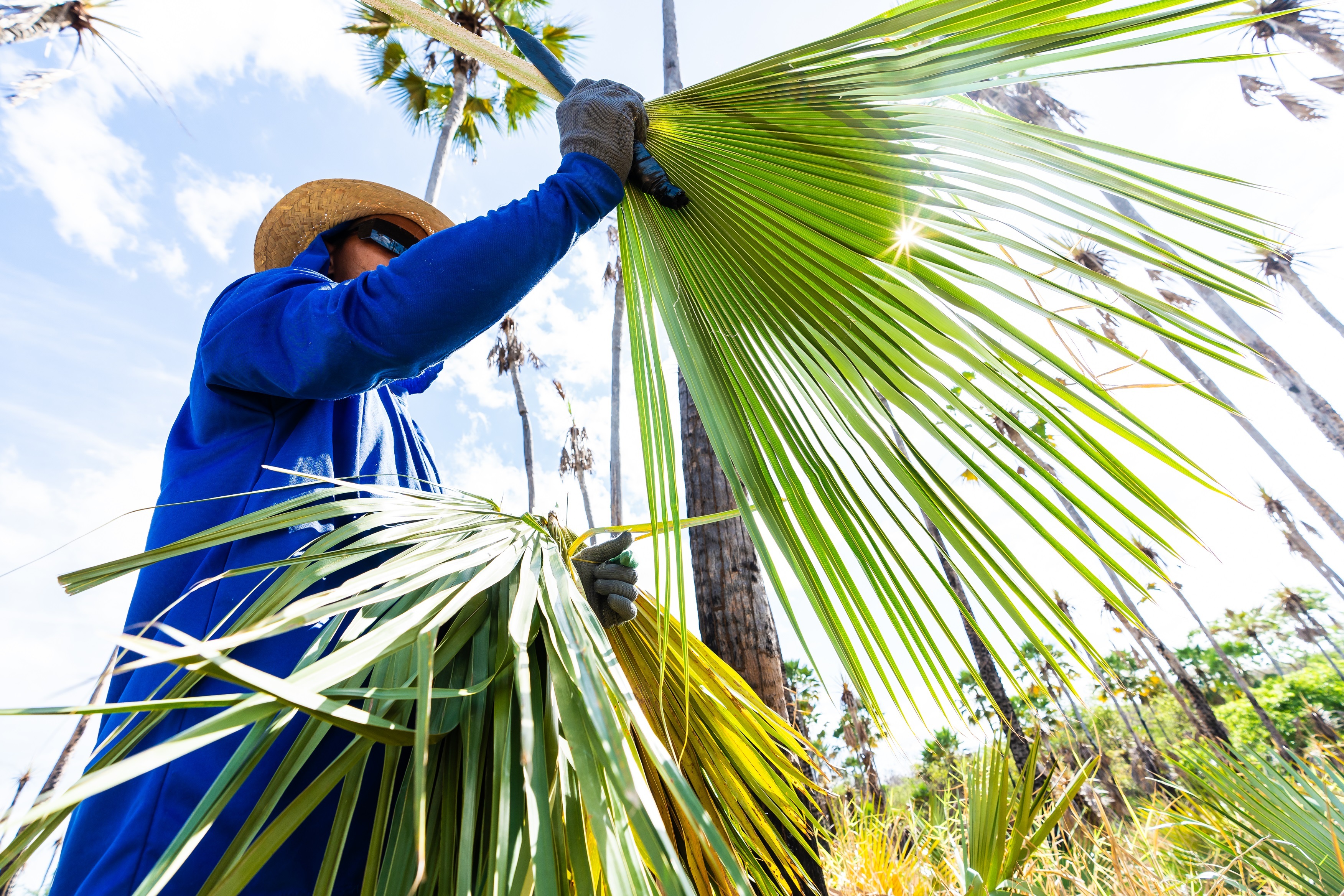
Rural worker cuts the leaves of the Carnauba palm
Partner
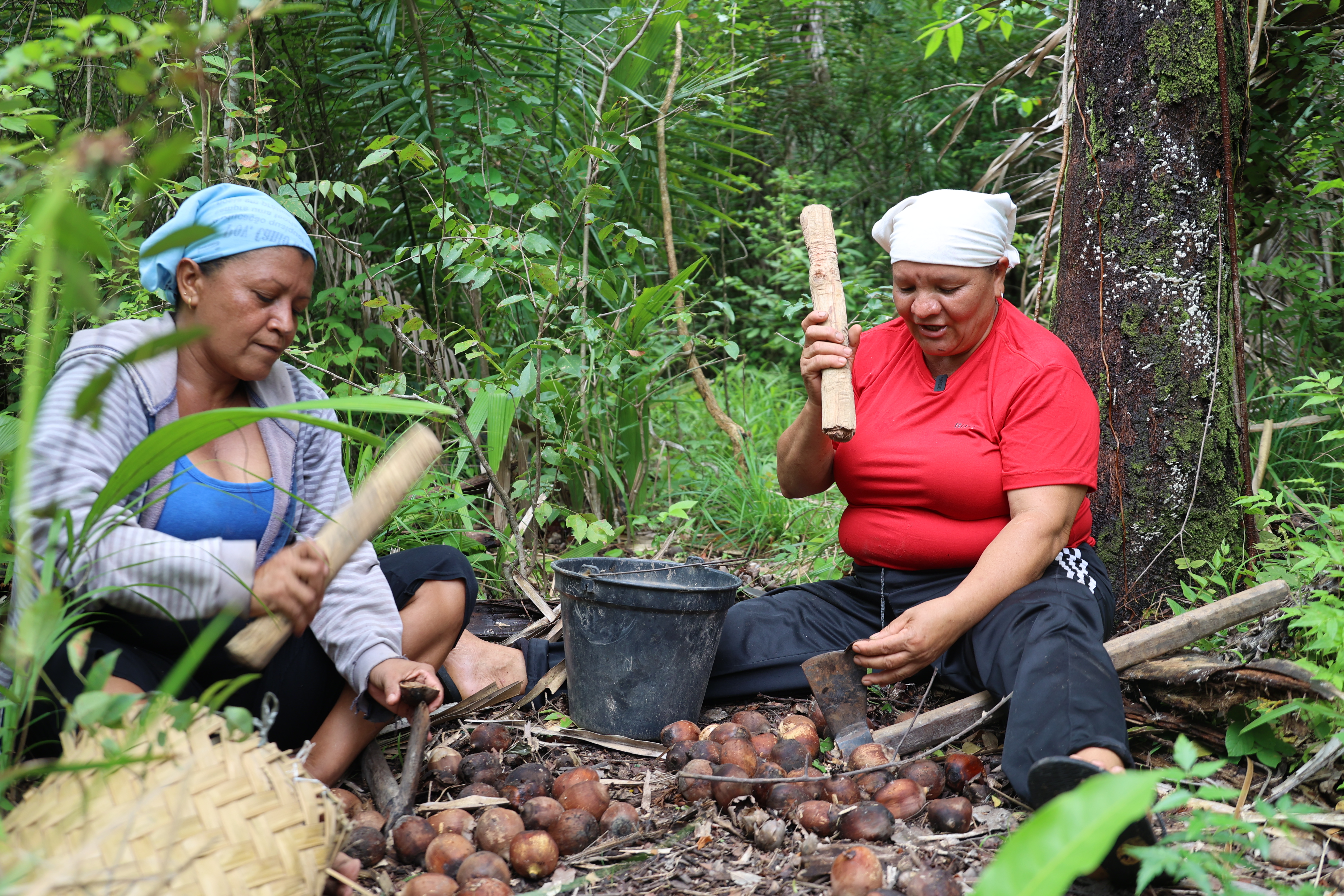
Two women break open the babassu nut in the traditional way
Brazilian Association of Vegetable Oil Industries (ABIOVE) and Federal University of Maranhão (UFMA): UFMA has taken over management of the Agro Plus program in partnership with ABIOVE and GIZ, focusing on sustainable soy production in Maranhão. This collaboration is expanding technical assistance for farmers, while combining industry expertise, and academic resources to promote environmental compliance and train future agronomists in responsible farming methods.
WWF, Forum Nachhaltigere Eiweißfuttermittel (FONEI), and German companies: With the aim of promoting deforestation-free soybean supply chains, and improving transparency and traceability, significant progress was made by WWF and GIZ through the creation of working groups involving major soybean purchasing companies. The partnership was renewed in 2023, focusing on deeper involvement of companies in Germany to strengthen their commitments and public awareness regarding deforestation and conversion-free soybean supply chains.
Central do Cerrado and Union for Ethical BioTrade (UEBT): The partnership between GIZ and Central do Cerrado under the AgriChains Brazil project focuses on enhancing sustainable babassu production and supporting sociobiodiversity enterprises in the Maranhão region. Through technical assistance and capacity building of a local settlement, the collaboration promotes sustainable agricultural practices and strengthens the supply chains for family farmers and traditional populations. The project aims to protect the landscape and ecosystems in the Cerrado biome, ensuring sustainable production methods and improving the livelihoods of babassu producers.
UEBT, Initiative for Responsible Carnauba (IRC) and carnauba wax companies: Together, they work to address labor rights violations, promote traceability, and implement the Ethical BioTrade Standard to ensure fair working conditions for harvesters. GIZ supports this initiative by facilitating multi-stakeholder dialogues, providing technical assistance, and helping companies align with international sustainability requirements.
We used to work in isolation. The AgriChains Brazil Project brought in several partners to help us with what we are doing. We believe that the more sustainable we become, the more we can produce.
What has been achieved so far?
- 178 soy farms (270,000 hectares) benefited from technical assistance and national sustainability protocols to improve socio-environmental practices.
- 1,320 producers, workers and technicians trained to increase their socio-environmental skills in the soy production chain
- 1,213 family farmers and workers trained to increase their socio-environmental skills in socio-biodiversity chains
- Development of state and municipal public plans and strategies with a landscape approach to strengthen family farming and environmental regularization in soy production territories.
- More than 200 institutions, companies, NGOs and the public sector took part in the Sustainable Soy Dialogues workshops and events, which helped to create the Sustainable Soy Alliance, a platform for exchanging solutions and innovations for soy sustainability in the MATOPIBA Region (states of Maranhão, Tocantins, Piauí and Bahia) of the Brazilian Cerrado.
Outlook
The AgriChains Brazil project demonstrates significant potential to transform the soy, babassu, and carnauba supply chains into models of sustainability and social equity.
For soy, the project creates a pathway for scaling deforestation-free production across the Cerrado. By strengthening Brazil’s national traceability systems and aligning with international standards, the initiative could help secure premium markets in Europe while reducing land-use conflicts. Future prospects should prioritize financial mechanisms to incentivize soy farmers to adopt more sustainable practices.
The carnauba wax and the babassu supply chains holds promise for systemic reform. The partnership with international certifications and ethical buyers provides a opportunity to improve working conditions and increase income for harvesters. If successful, Brazil could attract conscientious buyers in cosmetics and food industries.
For all three supply chains, long-term success depends on:
- scaling up landscape-level governance
- securing financial investments to make sustainability economically viable for producers
- ensuring traditional communities benefit through inclusive business models
With continued innovation, this project has the potential to set a precedent for reconciling agricultural production with forest conservation and social justice in the Cerrado biome.
More information
Aliança da Soja Sustentável (PT)
Babaçu-Dialog (PT)
ISPN: Babassu Lieferkette (PT)
Pro-Carnaúba-Dialoge (PT)
Carnauba wax from Brazil (ENG)
